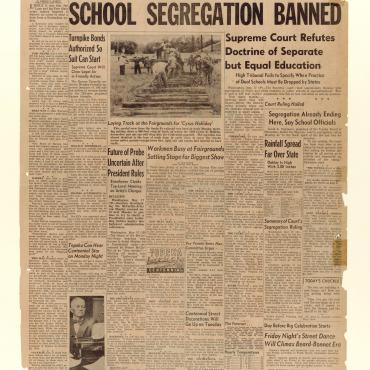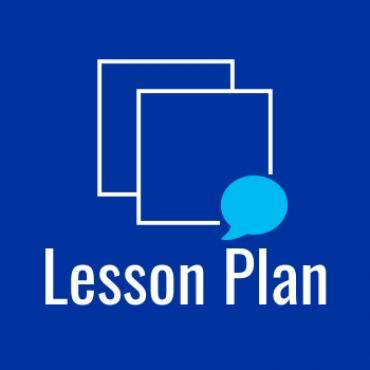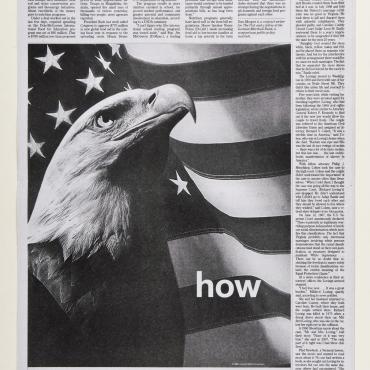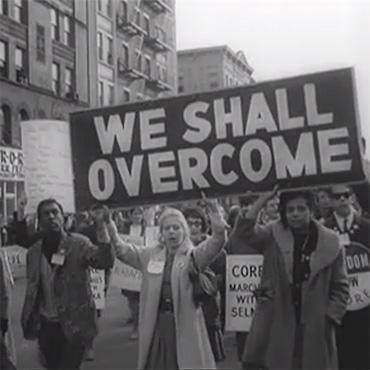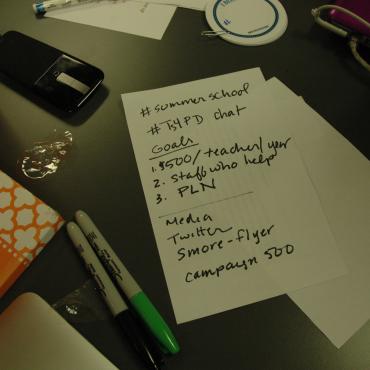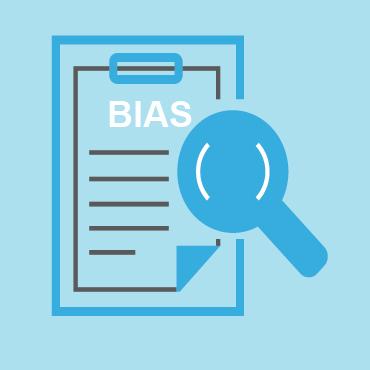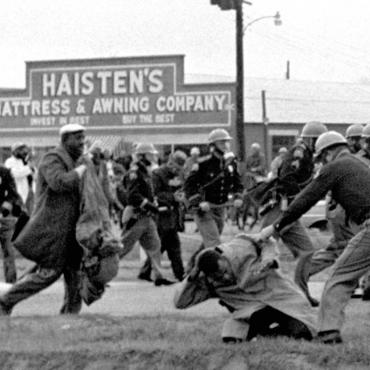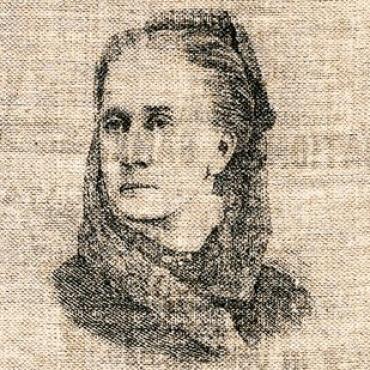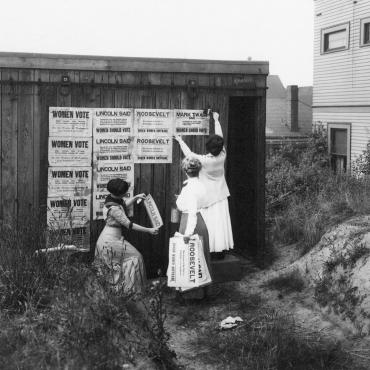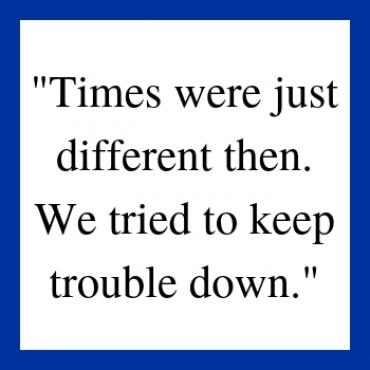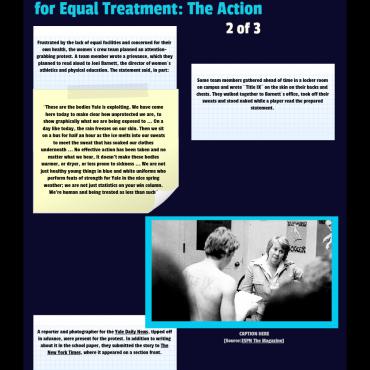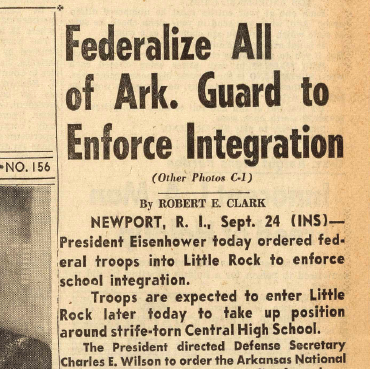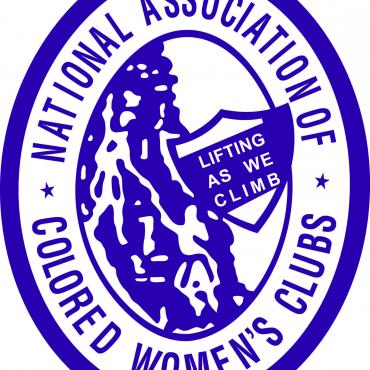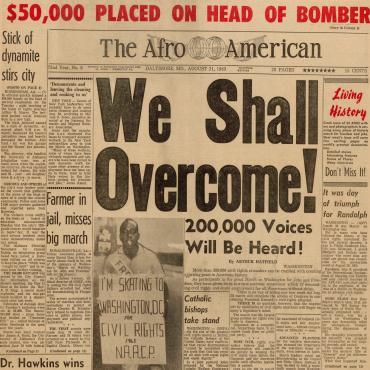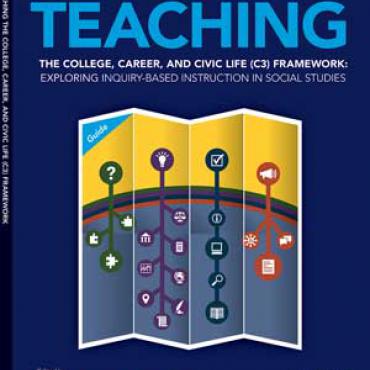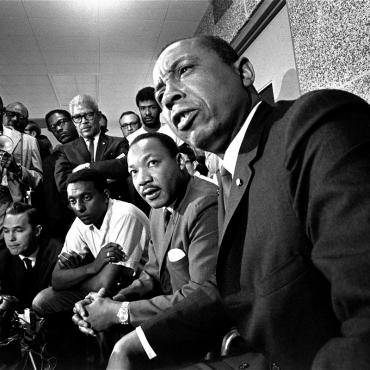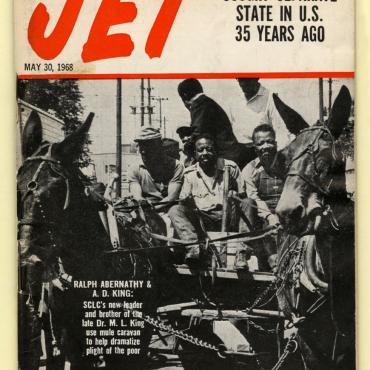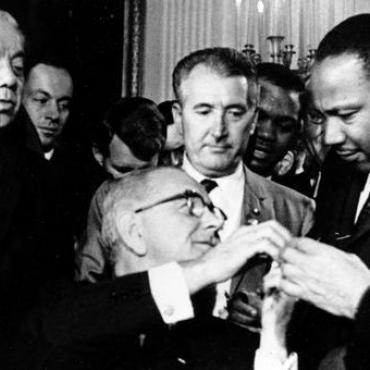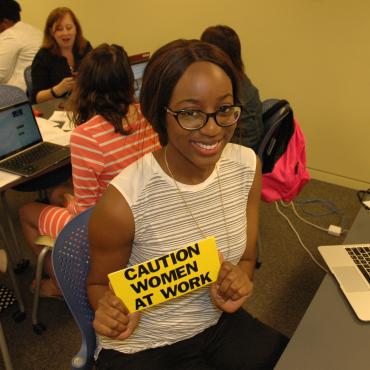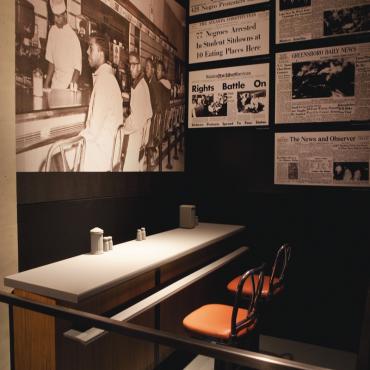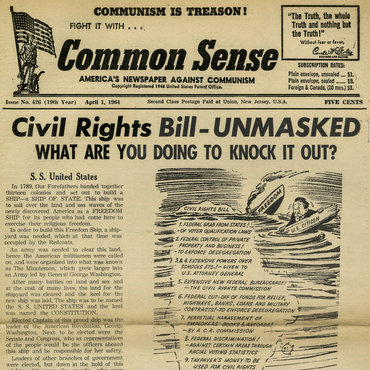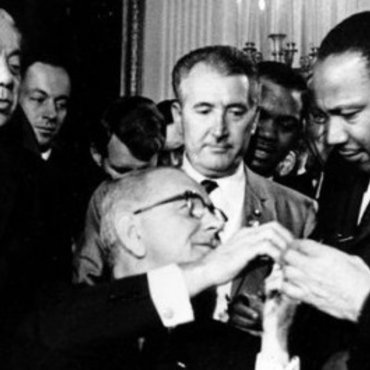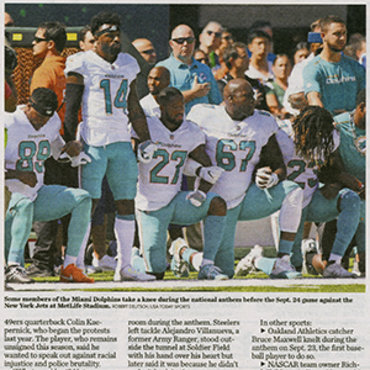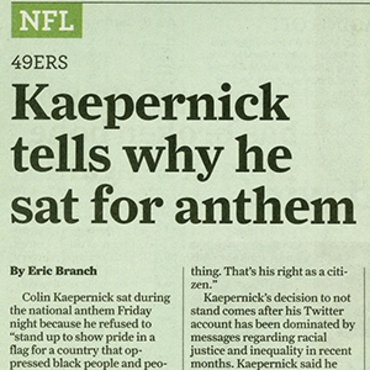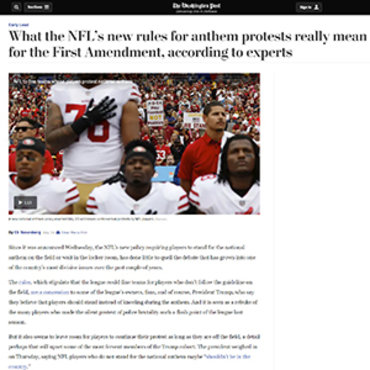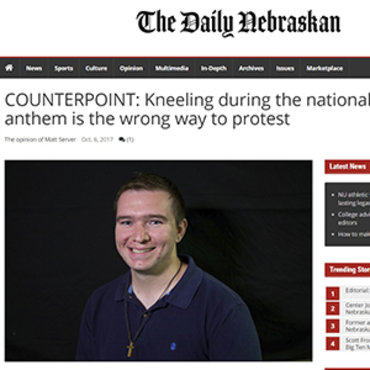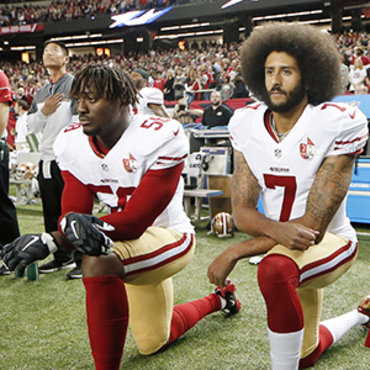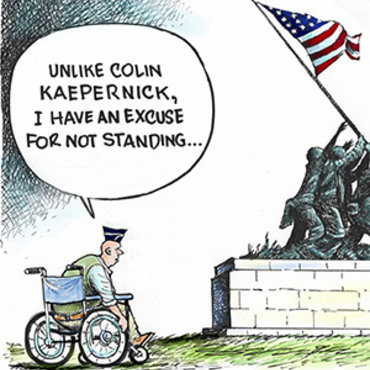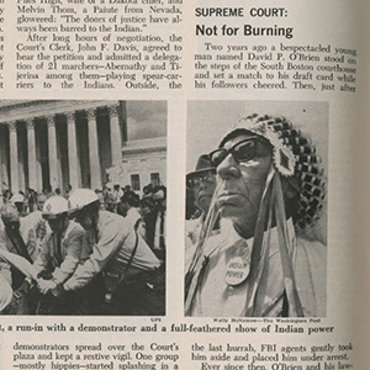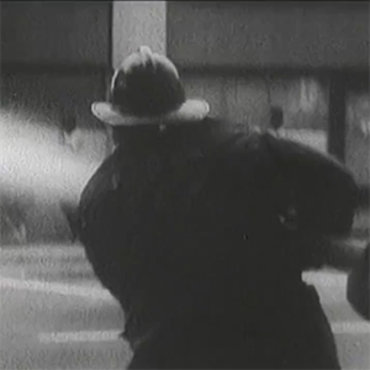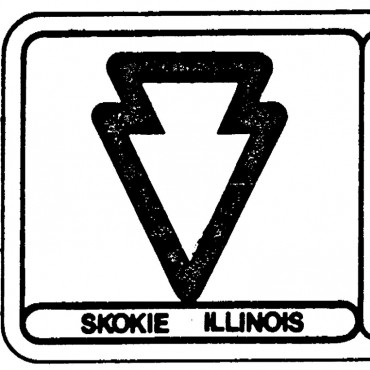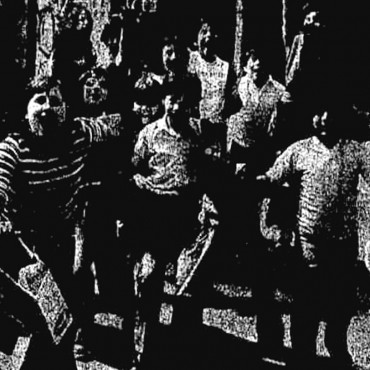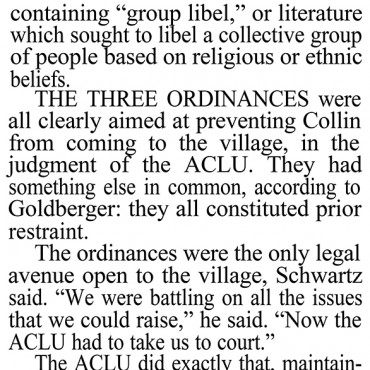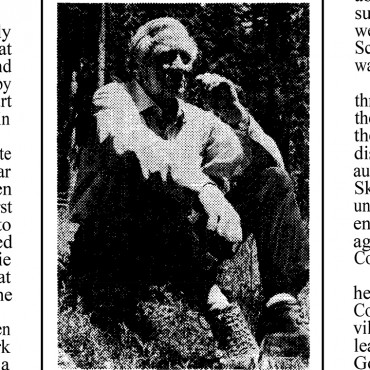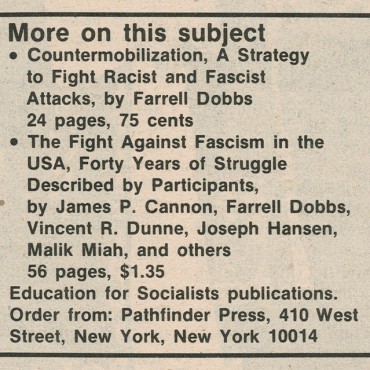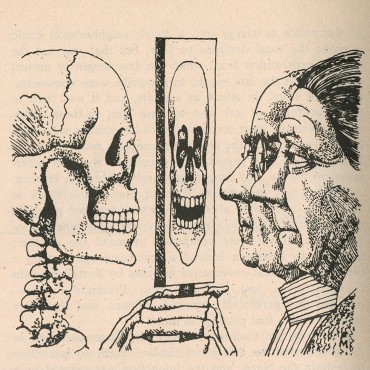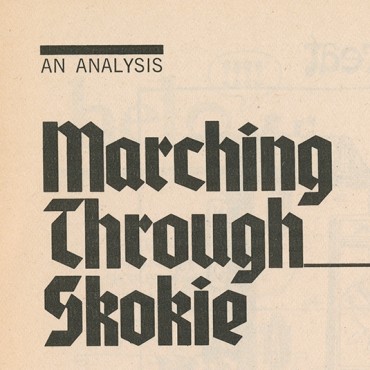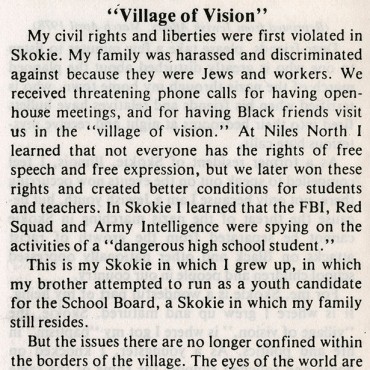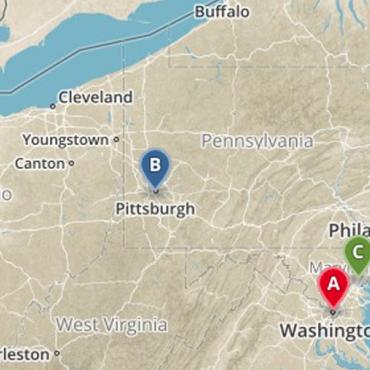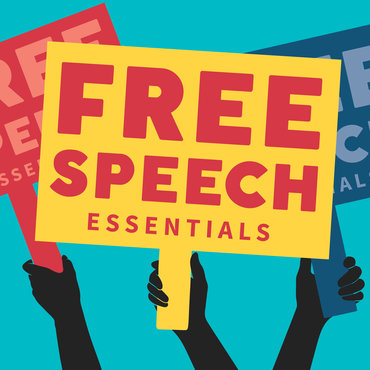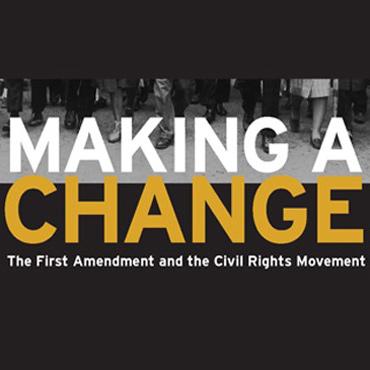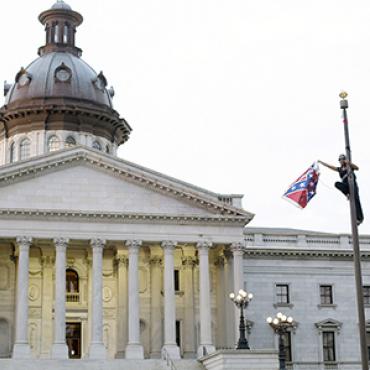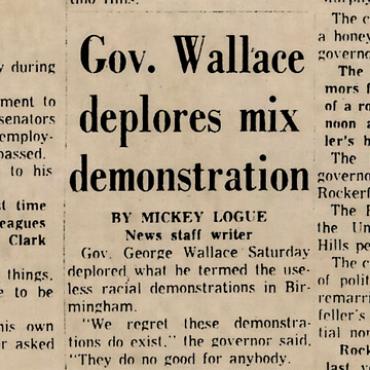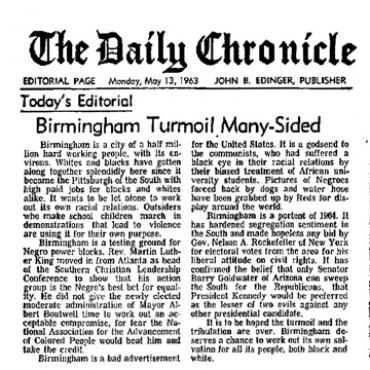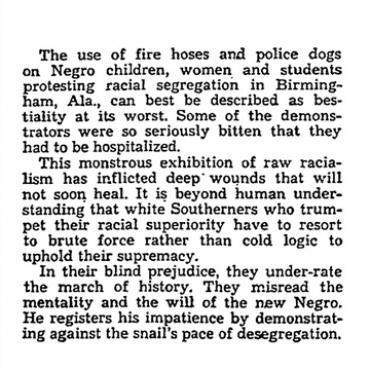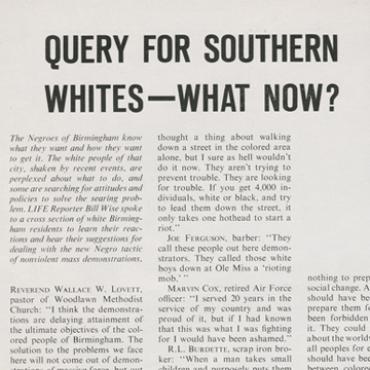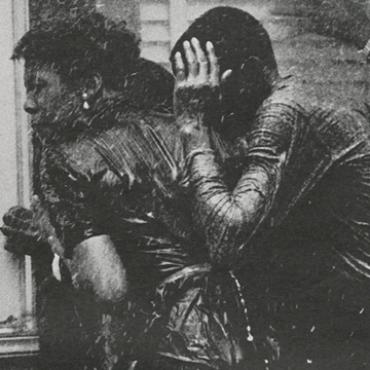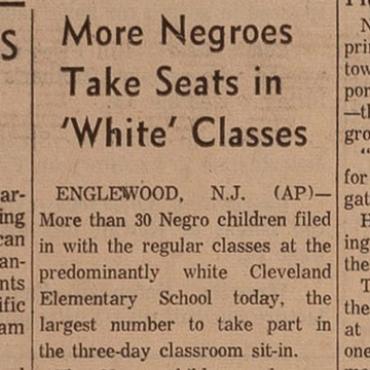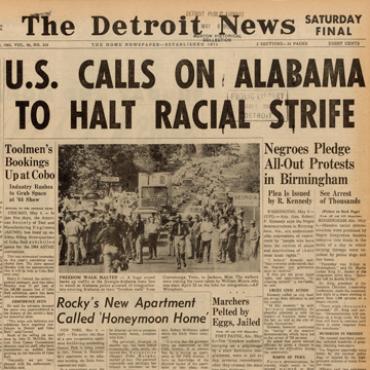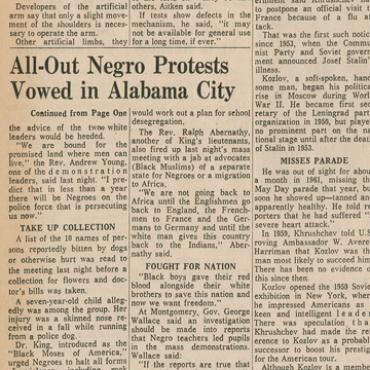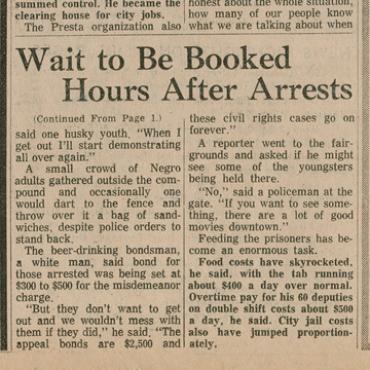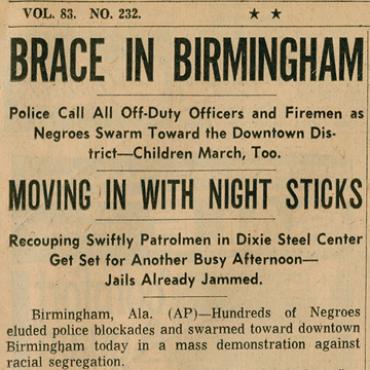Civil Rights: Your Stories of Change
Students create a multimedia project to document their class service learning project and share their results with the community.
Get even more great free content!
This content contains copyrighted material that requires a free NewseumED account.
Registration is fast, easy, and comes with 100% free access to our vast collection of videos, artifacts, interactive content, and more.
NewseumED is provided as a free educational resource and contains copyrighted material. Registration is required for full access. Signing up is simple and free.
With a free NewseumED account, you can:
- Watch timely and informative videos
- Access expertly crafted lesson plans
- Download an array of classroom resources
- and much more!
- Civil Rights
- 6-12
- Complete the community service project selected in lesson 2: The Five Freedoms: A Tool for Change.
- With students, search news media sites, including blogs, to find stories about local civil rights issues that grab the students’ attention.
- Ask students: What elements of these projects make them attention-grabbing? Answers include: color, font, word choice, music, video
- Then ask students: Which of these projects do you find trustworthy, and why? Answers include: use of quotations and statistic, named and anonymous sources, inclusion of multiple perspectives, etc.
- Divide the class into small groups to create their multimedia projects.
- Invite parents, peers and community members to see a presentation of your project.
- Your Stories of Change worksheet (download), one per student
- Sample worksheet, included at the end of the lesson plan packet (optional, distribute it to your students for guidance)
- Internet access, tools for documenting your project’s progress, such as journals, cameras, tape recorders, and video cameras
Have students present their panels to their classmates and discuss their findings. Prompts include:
- What is the same among each group’s work and what is different?
- Which tools and forms of media are the most effective? Why? Which ones were less effective? Why?
- Imagine you are not familiar with this class or your community in general. What would you learn from this panel? What questions would you have?
- What are the next steps you would take to expand this project’s impact?
- Do you think documenting the work your class has done is important? Why or why not? How could you make your documentation more effective?
Sharing Your Story: Share the story of your project beyond the NewseumED online community. Plan an assembly or other event to share the story of your class’s work with others at your school or in your larger community. Have students determine what additional tools they will use to communicate the story of their efforts based on the format of your chosen event. For example, if you will be hosting an informal gathering, they may want to create a photo exhibit for visitors to browse. If you are hosting a formal assembly, they may want to write short speeches about their role in the project and its impact.
-
Common Core State Standards: CCSS.ELA-LITERACY.CCRA.SL.4
Present information such that listeners can follow the line of reasoning and the organization, development, and style are appropriate to task, purpose, and audience.
-
NCSS C3 Framework: D2.Civ.14.6-8 and D2.Civ.14.9-12
6 - 8: Compare historical and contemporary means of changing societies, and promoting the common good. 9 - 12: Analyze historical, contemporary, and emerging means of changing societies, promoting the common good, and protecting rights. -
NCSS C3 Framework: D2.Civ.8.6-8 and D2.Civ.8.9-12
6 - 8: Analyze ideas and principles contained in the founding documents of the United States, and explain how they influence the social and political system. 9 - 12: Evaluate social and political systems in different contexts, times, and places, that promote civic virtues and enact democratic principles. -
NCSS C3 Framework: D3.1.6-8 and D3.1.9-12
6 - 8: Gather relevant information from multiple sources while using the origin, authority, structure, context, and corroborative value of the sources to guide the selection. 9 - 12: Gather relevant information from multiple sources representing a wide range of views while using the origin, authority, structure, context, and corroborative value of the sources to guide the selection
-
ISTE: 3a. Knowledge Constructor
Students plan and employ effective research strategies to locate information and other resources. -
ISTE: 3c. Knowledge Constructor
Students create collections of artifacts that demonstrate meaningful connections or conclusions. -
ISTE: 3d. Knowledge Constructor
Students build knowledge by actively exploring real-world issues and problems.
-
National Center for History in the Schools: NCHS.US History.Era 10
Standard 1: Recent developments in foreign policy and domestic politics Standard 2: Economic, social, and cultural developments in contemporary United States
-
National Council of Teachers of English: NCTE.8
Students use a variety of technological and information resources (e.g., libraries, databases, computer networks, video) to gather and synthesize information and to create and communicate knowledge.
-
Center for Civic Education: CCE.V
A. What is citizenship? B. What are the rights of citizens? C. What are the responsibilities of citizens? D. What civic dispositions or traits of private and public character are important to the preservation and improvement of American constitutional democracy? E. How can citizens take part in civic life?
-
NCSS Curriculum Standards: NCSS 1
Learners will understand how human beings create, learn, share and adapt to culture. -
NCSS Curriculum Standards: NCSS 5
Students know how institutions are formed, maintained and changed, and understand how they influence individuals, groups and other institutions. -
NCSS Curriculum Standards: NCSS 6
Learners will develop an understanding of the principles, processes, structures and institutions of government, and examine how power and authority are or have been obtained in various systems of government. -
NCSS Curriculum Standards: NCSS 10
Learning how to apply civic ideals to inform civic action is essential to participation in a democracy and support for the common good.
